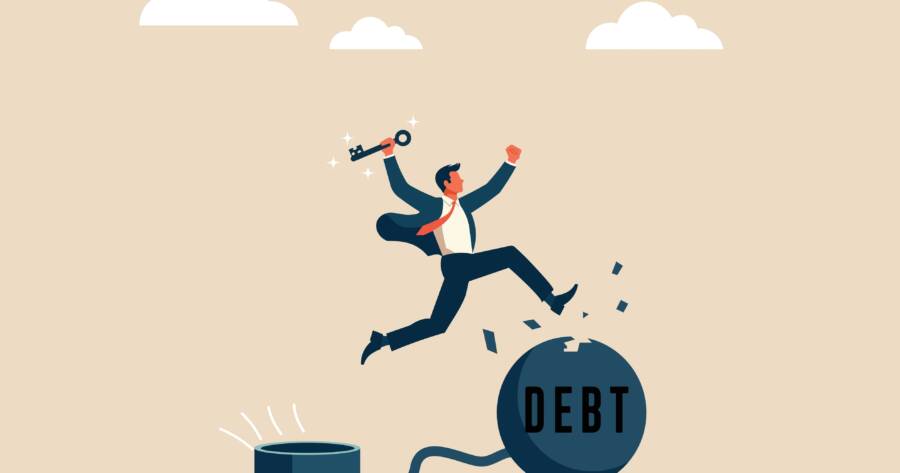Becoming debt-free is an incredible achievement and one that deserves celebration and reflection. After months or even years of dedication, the weight of repayment finally lifts, leaving room for new goals and possibilities. Yet staying debt-free requires as much intention as reaching that milestone in the first place. The habits that helped you pay off debt can now evolve into tools for building wealth, maintaining balance, and protecting your hard-earned financial freedom for good.
Take Time to Celebrate and Reflect
Paying off debt represents more than closing accounts—it’s the result of consistent effort, sacrifice, and perseverance. Take a moment to acknowledge the progress you’ve made and the emotional weight you’ve lifted. Celebrating responsibly, like treating yourself to a meaningful experience or short trip, reinforces the sense of accomplishment without derailing your progress.
Reflection is just as important as celebration. Think about what habits or mindsets helped you reach this point. Understanding the behaviors that worked—and the ones that didn’t—gives you clarity moving forward. Every lesson learned during your debt journey becomes the foundation for smarter decisions and greater confidence in managing your money.
Keep a Purposeful Budget in Place
Once debt payments are gone, it’s tempting to ease up on budgeting. However, maintaining a spending plan ensures your money continues working for you instead of slipping through unnoticed expenses. Continue tracking income, bills, and discretionary spending just as you did before, but now shift your focus toward saving and investing.
Reallocating what you once paid toward debt is key. Direct that same amount toward savings, retirement, or a future goal. You’ve already proven you can live without that money—it’s simply time to give it a new purpose. Consistent budgeting keeps your finances steady while allowing freedom without the risk of backsliding.
Build and Protect an Emergency Fund
Freedom from debt doesn’t eliminate financial surprises. Medical bills, car repairs, or job changes can still happen, and without a cushion, it’s easy to fall back into borrowing. An emergency fund acts as your safety net, giving you peace of mind and protecting your progress.
Aim to save three to six months of essential expenses in an easily accessible account. Start small if needed—consistency matters more than speed. Having funds set aside for emergencies helps you respond confidently instead of reacting with credit cards or loans. Financial independence feels much stronger when you know you’re prepared for life’s unexpected turns.
Set New Financial Goals Beyond Debt Freedom
Paying off debt is a major milestone, but it’s not the finish line. Now is the perfect time to define what financial success looks like for your next chapter. Whether it’s buying a home, building retirement savings, or starting a business, new goals keep your momentum alive.
Write down specific, measurable targets and give each one a realistic timeline. Breaking them into smaller milestones makes progress feel attainable. When you stay goal-oriented, you channel the same discipline that eliminated your debt into creating a richer, more fulfilling financial future.
Avoid the Temptation to Borrow Again
After becoming debt-free, credit can feel less intimidating—but caution is key. Having access to credit doesn’t mean you need to use it regularly. Keep credit cards open to maintain your score, but pay balances in full each month. Using credit strategically, not emotionally, helps preserve your freedom.
If you find yourself tempted to make impulse purchases, revisit your original reasons for paying off debt. Reminding yourself of that hard-earned journey often strengthens your resolve. Responsible credit use should feel like empowerment, not an open door to repeating old habits.
Focus on Growing Wealth, Not Just Staying Afloat
True financial freedom goes beyond zero debt—it’s about creating security and opportunity. Consider expanding into investing, saving for retirement, or exploring passive income options. Even small contributions to a retirement account or brokerage fund can grow significantly over time through compounding.
Continue educating yourself about money management, whether through books, courses, or trusted financial advisors. The more knowledge you build, the more confident and proactive you become. Transitioning from debt management to wealth building turns your financial story from one of recovery into one of growth and independence.
Building a Future That Stays Debt-Free
Freedom from debt is a powerful starting point, not an ending. The habits that helped you overcome financial challenges (discipline, awareness, and resilience) will continue guiding your decisions. As your goals evolve, so will your approach to managing money.
Staying intentional ensures that debt doesn’t sneak back into your life. Every smart choice strengthens your foundation, allowing you to build a future defined not by limitation, but by lasting confidence, stability, and control.

